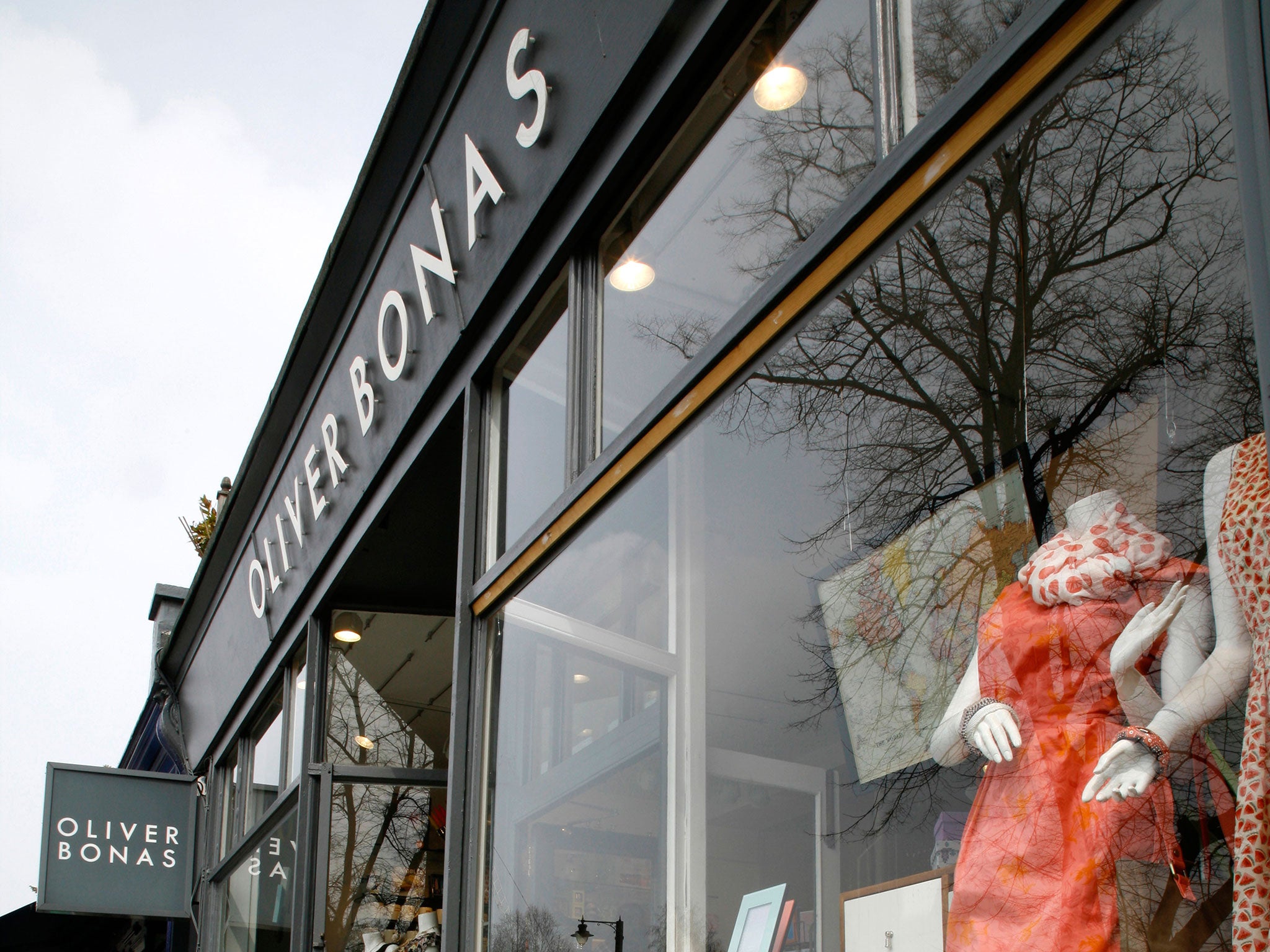Oliver Bonas becomes the first high street retailer to pay staff the accredited living wage
The move will mean more than 500 staff will be paid at least £7.85 an hour

The fashion and lifestyle retailer Oliver Bonas becomes the first high street chain today to achieve accreditation as a living-wage employer.
The move will mean more than 500 staff working at the company’s outlets will be paid at least £7.85 an hour and £9.15 in London.
In March, The Independent exclusively revealed that not a single high street chain had signed up to the voluntary scheme. Unlike the “living wage” announced by the Chancellor, George Osborne, in his July Budget – which is effectively just an increased minimum wage – the accredited living wage is calculated based on the cost of living rather than on what wages the market will bear.
Some of the UK’s biggest companies are accredited living-wage employers, which requires them to not only look after their own staff but also to cover workers such as contract cleaners or security guards at their offices. Oliver Tress, managing director and founder of Oliver Bonas, said his company’s move “reflects the hard work and loyalty” of staff. He said he hoped that it would “encourage more people to come and work with us” at the chain, which currently boasts 43 outlets. The company’s first store opened in Fulham in 1993. It sells fashion, jewellery, homeware and gifts.
Staffing is becoming an increasingly troublesome issue for employers as relatively low unemployment and a tight labour market makes it increasingly tough for them to find quality employees.
Earlier this week, Sainsbury’s handed its staff a 4 per cent pay rise. The grocer has argued that while it may not be a living-wage employer, staff receive perks such as paid breaks and discounts on top of its hourly rates.
Ikea has announced an intention to become a living-wage employer but it has yet to receive accreditation.
Rhys Moore, the Living Wage Foundation’s director, criticised major retailers for not doing more: “Major players in the retail sector have for too long complained that the living wage is too expensive to implement on the high street.
“This move by Oliver Bonas demonstrates that while it is not always an easy choice to make, it is the right choice and we hope that both staff and customers will support the leadership that they are showing.”
Some smaller or single-outlet retailers have signed up to pay the wage. Big employers such as KPMG and Barclays have previously argued that it pays for itself by leading to better quality work and lower rates of absenteeism.
New rates for the living wage will be announced by the Living Wage Foundation on 2 November. The Government “living wage” replaces the current minimum wage of £6.50 and will start at £7.20 an hour, rising to £9 an hour by 2020. However, it only applies to workers aged 24 and over.
The London living wage is calculated by the Greater London Authority, while the UK living wage outside the capital is handled by the Centre for Research in Social Policy at Loughborough University.
Subscribe to Independent Premium to bookmark this article
Want to bookmark your favourite articles and stories to read or reference later? Start your Independent Premium subscription today.

Join our commenting forum
Join thought-provoking conversations, follow other Independent readers and see their replies